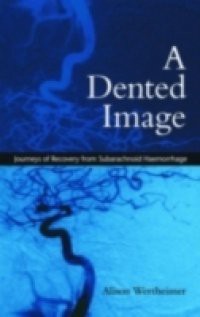Every year, 8,500 people in the UK will have a subarachnoid haemorrhage, of whom about 50 per cent will survive this traumatic brain injury which often occurs without warning. Survivors can make a 'good' neurological recovery but the psychosocial impact can be longer lasting. Drawing from her own experience of surviving a subarachnoid haemorrhage, together with other people's journeys of recovery and recent research findings, Alison Wertheimer covers: themes of recovery leaving neurocare and early days of recovery looking for help physical, sensory and cognitive effects the emotional impact of subarachnoid haemorrhage the survivor's relationship with family and friends returning to work what helped the survivors with their recovery subarachnoid haemorrhage as a life-changing event. A Dented Image will be of interest to a wide-ranging audience: survivors and their families and friends; health professionals working with people recovering from acute brain injury in hospital and community-based services including doctors, nurses, psychologists, physiotherapists, occupational therapists and other members of rehabilitation teams. It may also be of interest to people recovering from other traumatic illnesses or injuries.

